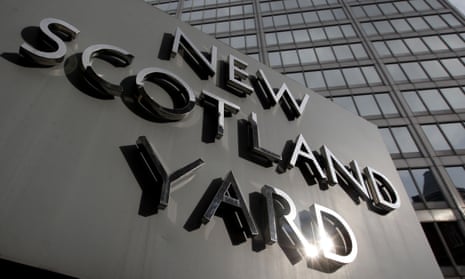Undercover police officers who adopted fake identities in deployments lasting several years spied on more than 1,000 political groups, a judge-led public inquiry has said.
It is the first time that the number of political groups infiltrated by the undercover spies over more than four decades has been made public. The list of groups that were infiltrated has not been published by the inquiry. However, it is known to include environmental, anti-racist and animal rights groups, leftwing parties and the far right.
The number of infiltrated political groups has been released by the public inquiry that was set up by Theresa May, while she was home secretary, to examine the conduct of the police spies since 1968.
May ordered the inquiry following revelations that the spies had gathered information about grieving relatives such as the parents of murdered teenager Stephen Lawrence, deceived women into forming long-term relationships and stolen the identities of dead children.
The inquiry disclosed the figure after campaigners who were spied on asked how many political groups were known to have been infiltrated.
The campaigners have been pressing the inquiry to publish a list of the groups and the names of the fake identities that were used by the police spies during their covert missions.
At least 144 undercover police officers have been deployed to spy on political groups since 1968. It appears that they gathered information on more than one group.
The spies developed elaborate false identities, often based on dead children and supported with fake documentation such as driving licences provided by the state.
They spent long periods, usually five years, pretending to be political activists while they fed back to their superiors information about the activities of campaigners and the protests that were being organised.
Sixteen of the spies have been identified following investigations by campaigners and journalists, giving some idea of which groups were spied on.
The initial groups infiltrated by the spies in the late 1960s and 1970s included campaigns against the Vietnam war and apartheid, and leftwing organisations such as the International Marxist Group. The operation was later expanded to target the extreme right.
In the 1980s, Bob Lambert, an undercover officer, masqueraded as an activist in the Animal Liberation Front and an environmental group, London Greenpeace.
In the 1990s, Peter Francis, an undercover officer who became a whistleblower, was deployed to spy on anti-racist groups such as Youth Against Racism in Europe, and the Socialist party. Another spy, Jim Boyling, was embedded in environmental groups such as Reclaim the Streets. His colleague Mark Jenner infiltrated the Colin Roach Centre, a group in London that sought to expose police corruption.
Andy Coles spied on animal rights campaigns, including the London Boots Action Group. In May, he resigned as the deputy police and crime commissioner for Cambridgeshire after he was accused of deceiving a 19-year-old political activist into starting a sexual relationship while undercover in the 1990s. He is currently under pressure to resign as a Tory councillor in Peterborough.
Since the turn of the century, Mark Kennedy and Lynn Watson have been sent to spy on environmental campaigns, while Marco Jacobs infiltrated the Cardiff Anarchist Network and Simon Wellings an anti-capitalist group, Globalise Resistance.
On Tuesday, the Home Office confirmed that the public inquiry was now being headed by a new judge, Sir John Mitting. He replaced Sir Christopher Pitchford, who stepped down after being diagnosed with motor neurone disease.
The inquiry has been delayed as the police are arguing that most of its proceedings should be held in private in order to protect the spies and their techniques. The police are submitting legal applications that would, if granted, keep secret the identities of their spies.
